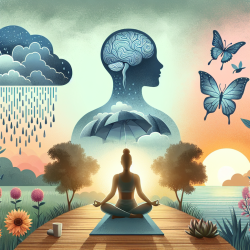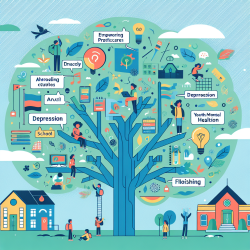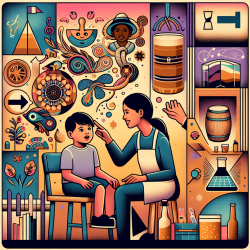In the realm of mental health, finding effective treatments for depression is an ongoing journey. While traditional methods like psychotherapy and medication are widely used, many individuals seek alternative therapies that align with their personal beliefs and lifestyles. One such promising alternative is yoga—a practice that integrates mind and body to promote overall well-being.
The Power of Yoga in Treating Depression
A recent systematic review titled "The Efficacy of Yoga as a Form of Treatment for Depression" sheds light on the potential of yoga as a complementary therapy for depression. This review evaluated 23 studies conducted between 2011 and 2016, focusing on various yoga interventions aimed at reducing depressive symptoms. The majority of these studies reported positive outcomes, indicating that yoga can be an effective tool in alleviating depression.
Understanding the Research
The studies analyzed in the review employed different designs, including randomized control trials and quasi-experimental methods. Despite variations in sample sizes and intervention durations, the findings consistently highlighted the benefits of yoga. Hatha yoga emerged as the most commonly used style, but other forms like mindfulness-based meditation and Viniyoga also showed promise.
- Diverse Participant Groups: The studies included diverse participant groups such as pregnant women, individuals with chronic pain, caregivers, and those with diagnosed depressive disorders.
- Positive Outcomes: Participants across these groups experienced reductions in depressive symptoms, improved mood, and enhanced quality of life.
- Long-Term Benefits: Some studies indicated that the positive effects of yoga persisted even after the intervention period ended.
Implementing Yoga in Therapeutic Practice
If you're a practitioner looking to enhance your therapeutic approach, incorporating yoga into your practice could be transformative. Here are some practical steps to consider:
- Education and Training: Familiarize yourself with different styles of yoga and their specific benefits. Consider pursuing training or certifications to deepen your understanding.
- Create a Safe Space: Ensure that your practice space is welcoming and accommodating for individuals at all levels of physical ability.
- Tailor Interventions: Customize yoga sessions based on individual needs and preferences. This personalization can enhance engagement and effectiveness.
- Encourage Consistency: Promote regular practice by providing resources such as guided videos or community classes to support clients outside of sessions.
- Cultural Sensitivity: Be mindful of cultural differences and respect diverse beliefs about health and healing when integrating yoga into treatment plans.
The Future of Yoga in Mental Health Care
The evidence supporting yoga as a complementary therapy for depression is compelling. However, there is still much to explore. Future research should focus on long-term effects, diverse populations, and integrating behavioral theories to maximize adherence and outcomes.
The journey towards mental wellness is deeply personal. By embracing practices like yoga, we open new pathways for healing that honor the connection between mind and body. As practitioners, we have the opportunity to guide individuals towards holistic well-being through compassionate care and innovative approaches.










